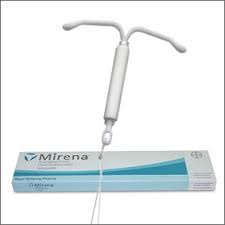
COVID-19, aka the Coronavirus, is a highly infectious virus that can be fatal for individuals 65 years or older. Nursing homes and long-term care facilities are particularly at risk for outbreaks due to the compromised immune symptoms of residents and the constant coming and goings of staff and visitors.
Families in Tennessee, Arkansas, Mississippi and Kentucky are certainly worried about their loved ones and whether they will be exposed to this dangerous virus. While it is still early to say how the courts will respond to COVID-19 lawsuits against nursing homes, there is a basis for personal injury claims and wrongful death suits based on negligence.
Guidelines for Nursing Homes During an Outbreak
Nursing homes are required to abide by state and federal laws regarding the treatment of residents, which includes creating a safe, healthy environment. When they fail to do so, they create dangerous conditions for viruses to spread and harm residents. As such, the CDC has outlined instructions for long-term care facilities and COVID-19 to help limit the spread of the disease and prevent against the tragic loss of life. These protocols and measures include the following:
- Reinforcing hygiene policies for respiratory illnesses and hand hygiene
- Reminding staff of sick leave policies and to avoid coming into work if they have a fever or feel ill
- Expanding access to protective gear, including masks and gloves, and the disposal of said gear
- Adding hand-sanitizer solution in every resident’s room and educating residents on hygiene policies with regards to COVID-19
- Restrict all visitation except for end of life matters, which are judged on a case by case basis
- Restrict all volunteers
- Limit or cancel community events and dinners
- Regularly screen and test residents for respiratory illnesses
- Regularly screen staff at the beginning and end of shifts for respiratory illnesses
- If a resident tests positive for COVID-19, they should be placed in a private room with a bathroom or be transferred to a hospital or facility that can handle the infection
- Communicate all restrictions, developments, and changes to procedures to residents’ families
The CDC also notes that these guidelines will be updated as more information and best policies come to light. Many of these policies overlap with the procedures nursing homes should follow for the seasonal flu, including sanitizing and cleaning the facility and enforcing sick leave and quarantine procedures to limit its spread.
Nursing homes must also have sufficient staff to care for patients and keep facilities clean.
Liability in Cases of Neglect and Infection
During the initial outbreak of COVID-19, a nursing home in Seattle was described as “ground zero” because of management’s failure to implement proper sanitary policies, social distancing rules, and screenings, as reported by the CDC. As a result, 23 individuals died. The report went on to detail many of the policies and guidelines listed above as effective measures against future outbreaks and losses. Over $600,000 in fines have been levied against that nursing home – and the federal government has given the nursing home until September 2020 to fix the problems or lose their funding.
Nursing homes have a duty to provide a standard of care for residents and protect them against future illnesses. When they fail to do this, they can be cited as being neglectful to residents. Neglect can take many forms in a nursing home, from the failure to provide adequate treatment to unsanitary conditions. If the nursing home management or staff failed to implement proper procedures, either by performing screenings, refusing visitation, implementing social distancing and quarantine, and enacting strict cleaning policies, they can be held liable for any injuries suffered by the residents, including death.
In addition, nursing homes are required to abide by physicians’ orders. If they fail to provide proper treatment for COVID-19, either through proper sanitation, hygiene, or medication, they can also be liable for not following proper procedures.
Filing a Claim Against a Nursing Home
If you would like to discuss an injury to your loved one as a result of COVID, please call us today or fill out the form for a free case evaluation.







